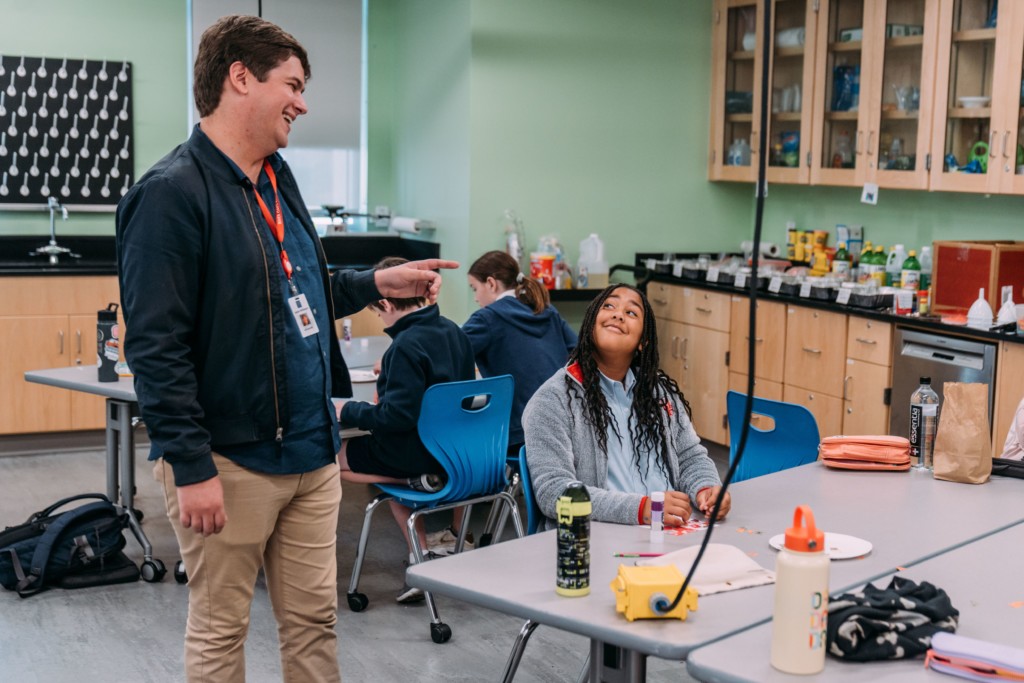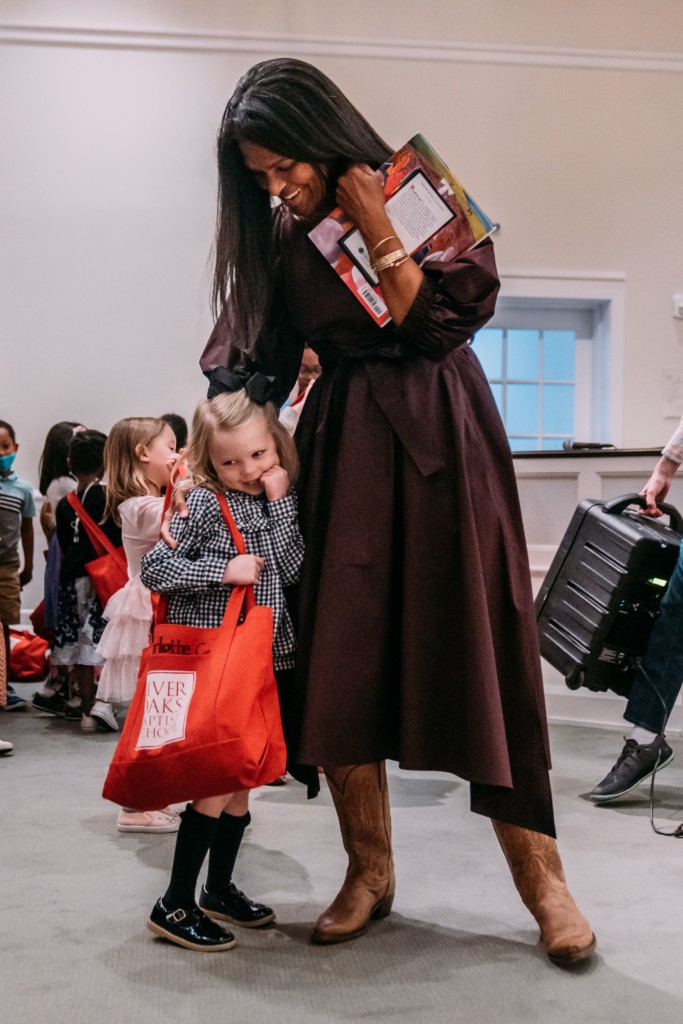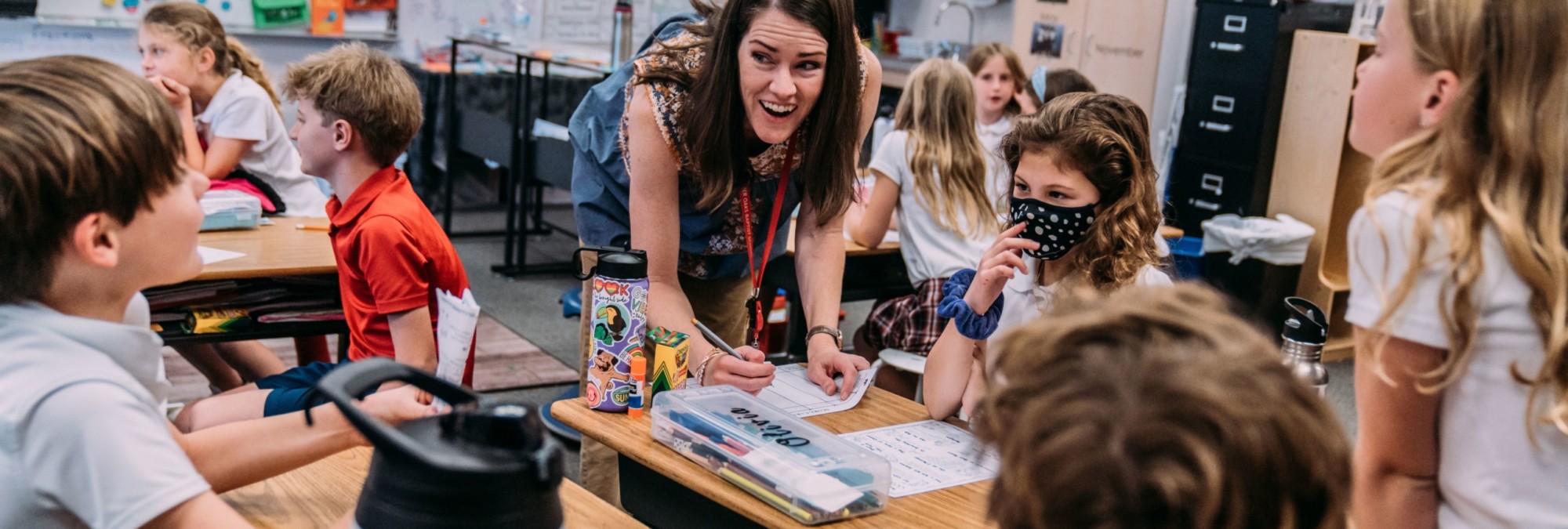These interviews were featured in the 2022 ROBS Vine & Branch publication. Communications Associate Kara Neumann interviews Preschool, Lower School and Middle School counselors to explore wellness as an area of strategic focus at River Oaks Baptist School.
A discussion on social, emotional, and spiritual wellness at ROBS
Our Roadmap 2020,the School’s current strategic plan, identified wellness as an area of strategic focus. Psychologists Dawn Hanson, Ph.D., and Karrie Hilliard, Ph.D., and licensed professional therapist James Blackwell, who serve as counselors for the Preschool, Lower School, and Middle School, respectively, are particularly invested in this strategic initiative. In an interview with Communications Associate Kara Neumann, they talk about the most common struggles students experience, how they work to support students both proactively and reactively, the intersection of character education, social-emotional learning, and faith, and why they are so committed personally to this effort.
What Inspired You To Enter This Field?
K: As early as adolescence, I was very interested in child development and psychology. After teaching bilingual kindergarten in HISD through Teach For America, I became convinced school is where the magic happens for children.
D: Like Karrie, I am passionate about working in schools. A desire to help others has always been at the center of my career, through both education and counseling.
J: My English literature major in college taught me to see the world through the arts–film, literature, and music to name a few. At first glance, this may seem disparately connected to mental health, but my studies afforded me quite a bit of insight into human expression. I find working through the many complexities of the human experience and wellbeing both intriguing and fulfilling.
Describe A Typical Week In Your Role Here At ROBS. What Kind Of Things Do You Work On?
J: Most of my time is spent meeting individually with students where I responsively employ a variety of therapeutic modalities to foster emotional health and growth. Additionally, I craft our weekly advisory lessons, which relate directly to the week’s chapel message, bolstering our community’s sense of connection, empathy, and faith.
K: Like James, I also meet individually with students at the request of the teacher, the parents, or the child. Depending on our goal, I might meet with a child just once, or map out a sequence of learning objectives to cover across three or four(or more) sessions. Routine communication with classroom teachers ensures I am aware of the students in the Lower School who need support. Some weeks also include character lessons on socially and spiritually important themes in Lower School classrooms.
D: Unlike Karrie and James, I don’t typically see individual students on a set basis. Counseling in Preschool more often involves spontaneously responding to children who are telling us through their behavior that they need extra attention. Sometimes this might be the result of an important life event at home–gaining a sibling or moving to a new house, perhaps–while other times it is something else entirely–an argument with a friend on the playground or feeling frustrated in the classroom. When these children need us, we find what works for them–sometimes we go on a walk around campus, other times we feed the fish in my office, often we read a book, many times we talk about God’s love. I work to ensure our students feel safe, supported, cared for, and loved when they’re at school
Karrie, Where Do You Get The Inspiration For Your Lower School Character Lessons?
K: At the heart of the character lessons are the Fruits of the Spirit: love, joy, peace, patience, kindness, generosity, faithfulness, gentleness, and self-control. I focus my lessons on concrete skill development in these areas. How can we show kindness with our peers, even when we’re frustrated? How can we demonstrate self-control in the classroom by respecting others’ personal space? In collaboration with our teachers, I tailor these lessons to be relevant to current classroom dynamics at a developmentally appropriate level

James, How Do You Plan The Advisory Lessons?
J: To craft the advisory lessons for Middle School, I collaborate with Christi DeSpain, Director of Spiritual Life, who curates our weekly chapel talks. This collaboration allows me to delicately weave our chapel messages into questions, prompts, and activities that reflect the School’s Christian mission to mold our students into responsible, caring individuals. I view each advisory lesson as a new opportunity for our students to grow closer to one another, their advisors, and God.
[Left: Middle School Counselor James Blackwell encourages Leah Hadnott in fifth grade advisory.]
“I view each advisory lesson as a new opportunity for our students to grow closer to one another, their advisors, and God.”
James Blackwell | ROBS Middle School Counselor
What are some of the most common mental health-related issues you see on our campus?
K: In Lower School, I find that I most often help our students learn to respond in a healthy way to big feelings. Those feelings might be frustration, rejection, ineptitude, nervousness, sadness… all the feelings that we humans experience in an imperfect world. My goal is to enhance our students’ ability to recognize appropriate response options and select the one that is most favorable for the situation.
J: In Middle School, our students most commonly face varying degrees of acute anxiety. By design, ROBS offers a rigorous course of study, and much is expected of the students that attend our School. But the stress that can accompany these high expectations can prove taxing. I provide our students a safe and secure space on campus where we work through complex emotions and devise various coping strategies. In instances where students require support beyond our scope, I partner with parents to determine which available off-campus mental health resources would best serve their child.
To Whom Are The School Counselor’s Services Available On Campus?
K: Anyone and everyone! I have even fielded calls from parents of alumni, just because they trust that the person in this role will be eager and well-prepared to serve them. We all maintain an open-doo policy for any student who might be in need, as social and emotional health is vital to our students’ best learning and growing.
[Right: Head of Preschool Dawn Hanson, Ph.D., who serves as the de facto counselor for our littlest learners, embraces Charlotte Cornett after the morning chapel lesson.]

What is Your Perception of the Emotional Wellbeing of the School?
J: Despite the ravages of Covid-19 and the myriad challenges because of it, I am enormously proud of the resilience that our students have displayed. Middle school has never been easy, pandemic or not, but students remain dedicated and empathetic, ready to adapt on the fly and continue encouraging and supporting one another through each new challenge.
D: Through the many challenges of the last two years, our Preschool has still remained our happiest place on Earth. Our children are joyful and thriving, full of God’s love and hope.
K: I, too, have been impressed by the resilience and optimism within our community. Every day I see children and adults who are happy and thriving. If there has been a blessing embedded within this pandemic experience, it is that it has caused many of us to pause and consider the importance of mental health and emotional wellbeing. Greater awareness seems to have engendered a greater resolution to take care of ourselves and ask for help–two needs that have always been part of God’s design for us.

